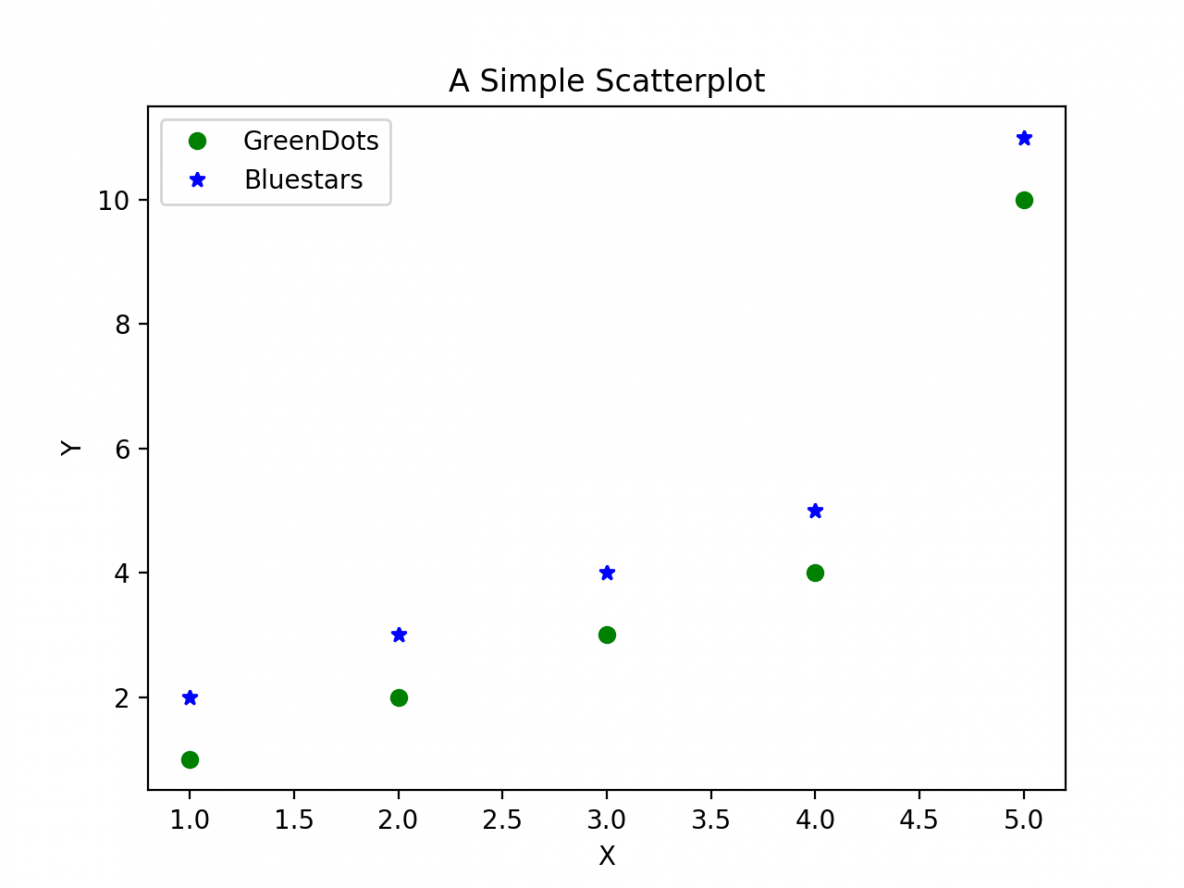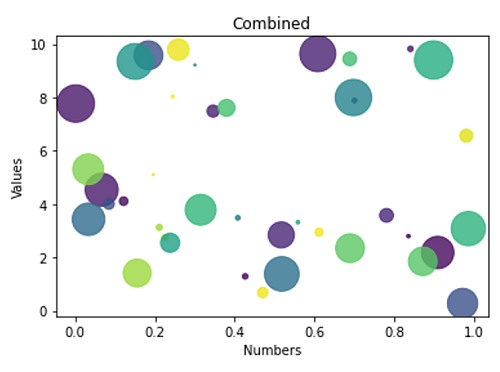

The x and y parameters of plt.scatter are very similar, so we’ll talk about them together.Įssentially, they are the x and y axis positions of the points you want to plot. So in the interest of simplicity, we’re only going to discuss five of them: x and y, c, s, and alpha. The large number of parameters can make using the function a little complicated though. Pyplot’s plt.scatter function has a variety of parameters that you can manipulate … nearly a dozen. With that in mind, let’s take a look at the parameters of the plt.scatter function.
#Scatter plot python how to#
You need to use the parameters of the function to tell it exactly what to plot, and how to plot it. To create a scatter plot with matplotlib though, you obviously can’t just call the function. For more information on that, see the examples below.
#Scatter plot python code#
Essentially, this code assumes that you’ve imported pyplot with the code import matplotlib.pyplot as plt. Keep in mind that we’re using the syntax plt to refer to pyplot. Here, we’re calling the function as plt.scatter(). Let’s take a look.įirst of all, notice the name of the function. To do this, we’re going to use the pyplot function plt.scatter().įor the most part, the synax is relatively easy to understand.

The syntax of the matplotlib scatter plotĬreating a scatter plot with matplotlib is relatively easy. It makes visualization easier for some relatively standard plot types.Īs I mentioned, one of those plots that you can create with pyplot is the scatter plot. Ultimately, the tools from pyplot give you a simpler interface into matplotlib. For example, pyplot has simple functions for creating simple plots like histograms, bar charts, and scatter plots. Specifically, pyplot provides a set of functions for creating simple visualizations. Pyplot is a sub-module of the larger matplotlib module. To put it simply, pyplot is part of matplotlib. When you start working with matplotlib, you might read about pyplot. On the other hand, the complex syntax of matplotlib can make it more complicated to quickly create simple data visualizations. This makes the syntax very adaptable for different visualization problems. You can use matplotlib to create complex visualizations, because the syntax is very detailed. Some of those data visualizations can be extremely complex. It provides Python users with a toolkit for creating data visualizations. Matplotlib is a data visualization module for the Python programming language. Before I show you how to make a scatter plot with matplotlib, let me quickly explain what matplotlib is. Everything will make more sense that way.
#Scatter plot python full#
Examples of how to make a scatter plot with matplotlibĪgain though, if you’re a relative beginner and you have the time, I recommend that you read the full tutorial.The syntax for the matplotlib scatter plot.These links will bring you to the appropriate section in the tutorial. Having said that, if you just need quick help with something, you can click on one of the following links. Ideally, it’s best if you read the whole tutorial. Overall, the tutorial is designed to be read top to bottom, particularly if you’re new to Python and want the details of how to make a scatter plot in Python. This tutorial will show you how to make a matplotlib scatter plot, and it will show you how to modify your scatter plots too. You should know how to do this with your eyes closed. Having said that, if you want to do data science in Python, you really need to know how to create a scatter plot in matplotlib. The scatter plot is a relatively simple tool, but it’s also essential for doing data analysis and data science. In this tutorial, I’ll show you how to make a matplotlib scatter plot.


 0 kommentar(er)
0 kommentar(er)
